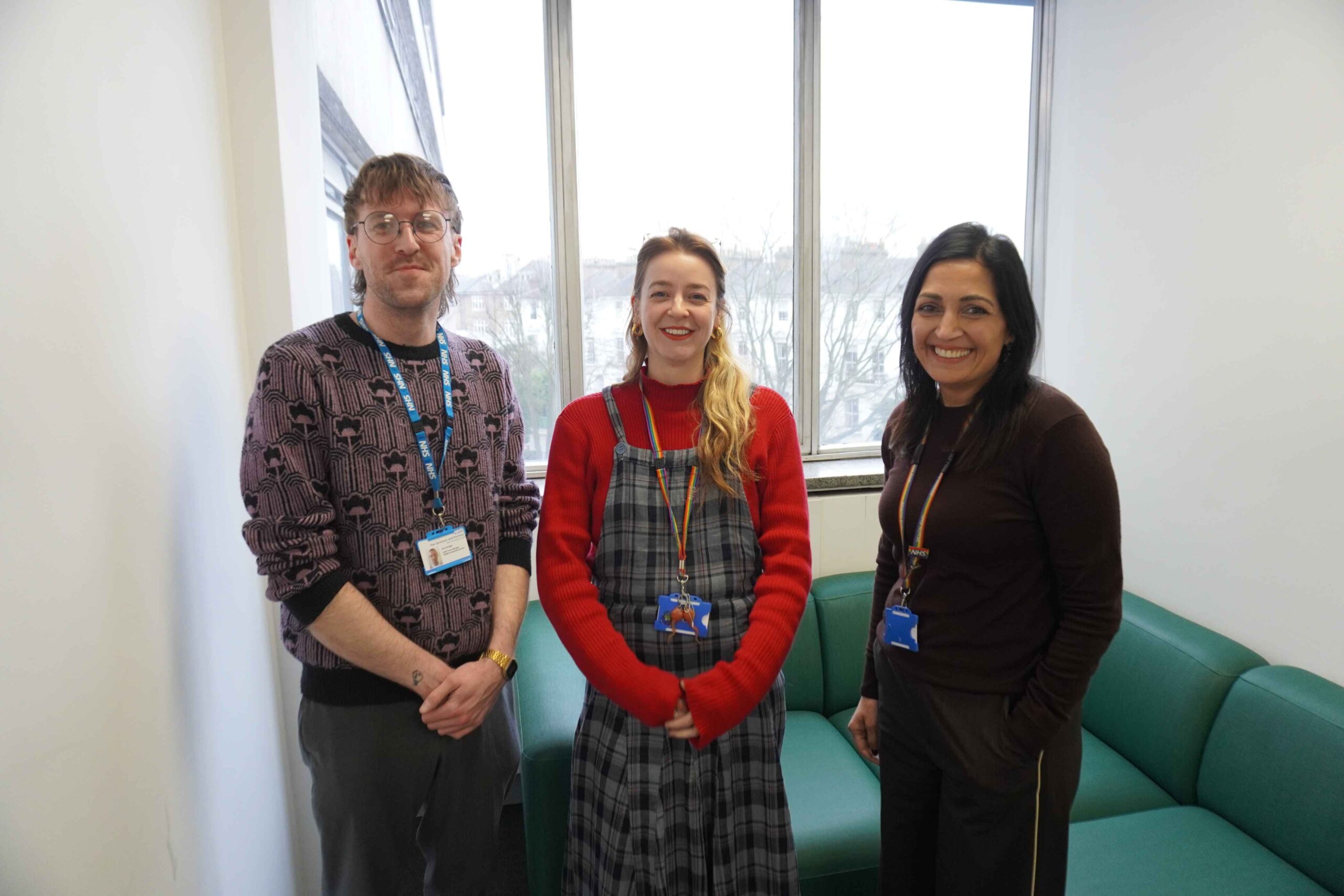
News
Celebrating Mental Health Nurses Day
Today is Mental Health Nurses Day, which encourages us to celebrate the incredible work of mental health nurses, who make a profound difference in the lives of so many of our patients. We would like to share some personal reflections from three of our mental health nurses — Nimisha, Alex and Natalie.
When did you start working in this field and join the Tavistock and Portman?
Alex: I have worked in mental health for 10 years in various roles—initially starting as a healthcare assistant before undertaking my nurse training—and joined the Tavistock and Portman in August 2024 as the Clinical Lead for the CAISS team.
Nimisha: In 1994, I started working as a nursing assistant and have since been a qualified nurse for about 25 years. I have worked at the Trust for the past 10 years in a number of nursing roles, and am now the Associate Director of Nursing.
Natalie: After completing a degree in Psychology, I got a job as a healthcare assistant in an adolescent inpatient unit. This role really opened my eyes to the work that mental health nurses do, and from there, I decided to train to be a mental health nurse in 2020, qualifying in 2022. I started working at the Tavi in the Camden Adolescent Intensive Support Service in January 2023.
What motivates you to work as a mental health nurse?
Nimisha: I love being a mental health nurse. Over the years, I have worked with so many innovative and exciting teams, meeting the needs of children and young people in a variety of settings. One of the things I love most is the flexibility and creativity of the role.
Natalie: A really special and unique aspect of the role, which originally drew me to pursue a career in mental health nursing, is the people-oriented approach. I love being able to build a therapeutic relationship with the young people and families I work with. Working alongside people and meeting them where they are to develop collaborative, person-focused support is one of the most enjoyable features of the job. I also enjoy the ability to be creative and flexible in the help we offer — whether that means meeting a young person outside a clinical setting where they feel more comfortable or simply playing a game to help them feel at ease when opening up about difficult experiences and emotions.
What is the most rewarding and challenging aspect of the role?
Natalie: Working with young people and their families and being able to develop trust during a difficult time is a real privilege. Similar to many mental health services, one of the biggest challenges is the lack of time and resources available.
Alex: It is always hugely rewarding when you see positive changes in a person’s life that you have helped them make. It is also a real privilege to support young people and their families when they are going through difficult times. I also really enjoy providing clinical leadership to the service and focusing on how we can continue to evolve to meet the ever-changing needs of the young people we serve, while maintaining what is fundamentally a nursing approach to care.
Nimisha: My current role is more removed from direct patient contact, but I am able to support other nurses through reflective supervision and training. I also support patient experience by ensuring their voices are heard and considered in service delivery and improvement.
What does Mental Health Nurses Day mean to you?
Alex: It’s a day for mental health nurses to take a moment to recognise the good work they do, and for others—colleagues and the public—to appreciate the vital role of mental health nurses within the NHS, which can sometimes be taken for granted or overlooked.
Nimisha: It is a great opportunity to raise awareness and understanding of the important role we play in children’s and young people’s mental health. Our roles are often so varied that it can be difficult to define and articulate the wealth of skills and knowledge mental health nurses bring.
Natalie: There are a lot of negative stereotypes about what mental health nurses do, often reinforced by depictions in films and TV shows. Mental Health Nurses Day is an opportunity to celebrate the role of mental health nurses and dispel these misconceptions. Before I worked as a healthcare assistant on an inpatient unit, I did not fully understand what mental health nurses did. Seeing firsthand, both then and throughout my career, the patience, kindness, and genuine care and compassion given—even in really difficult circumstances—was truly inspiring. My hope is that the more people understand what the job of a mental health nurse actually involves, the more will be inspired, as I was, to complete the training and become a mental health nurse too.
